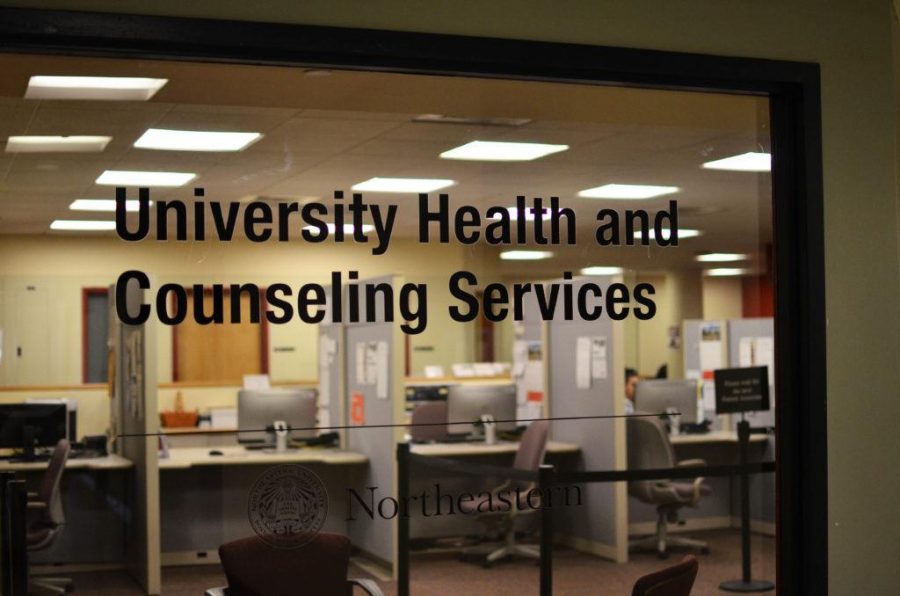Op-ed: The hypocrisy of “Protecting the Pack”
September 10, 2020
Content warning: discussion of suicidal thoughts
Editor’s note: The Huntington News wants students to know Northeastern University and elsewhere provide mental health resources for students.
- WeCare: wecare@northeastern.edu, 617-373-7591, 226 Curry
- University Health and Counseling Services (UHCS): uhcs@northeastern.edu, 617-373-2772, Forsyth Building, 1st Floor
- 24/7 Mental Health Support: for students by phone (FIND@Northeastern) – 877-233-9477 (U.S.), 781-457-7777 (international)
- Suicide Prevention Hotline: 1-800-273-8255
- OptiMindHealth Back Bay: 617-507-1472, 800 Boylston St 16th Floor, Boston, MA 02199
- Network of Care Massachusetts: COVID-19 mental health support
During the last three months of my first co-op, after lunch, I developed a ritual. Lunchbox and water glass in hand, I’d stand at the top of a staircase and prepare to jump. The stairs were enclosed in a separate area, so nobody could see me standing – sometimes sitting – motionless at the top of the stairs. Three months’ worth of lunches ended this way as I waded through grief-induced depression.
My family and friends didn’t know. My therapist barely knew. I was uncertain of whether I should tell them, but there was one thing I was sure of — nobody employed by Northeastern would know just how bad my mental health had become. I felt completely alone while being told online that my school was a community where everyone cared about and helped one another.
In the past month, Northeastern unveiled a new plan for students on campus during the pandemic, a plan centered around students holding each other accountable and keeping one another safe. The plan isn’t merely a suggestion — it’s being strictly enforced by the administration, who put forth some vaguely worded rules. As a marketing move, the policies are wrapped in the messaging of “protecting the pack.”
Where has this messaging been?
More young people are suffering from mental health issues, with some of them turning fatal. Campus life is plagued with sexual assault, and systemic and cultural racism is still deeply embedded in campus politics.
And what does the student body get?
First, we get an underfunded, understaffed counseling program. It’s no secret that University Health and Counseling Services is poorly funded, and faculty are not prepared to help mentally ill students. It’s practically a university-wide joke. On-campus mental health resources are not properly advertised to students, and many are also afraid to come forward about their mental health issues out of concern that it won’t accomplish anything. Hardly any progress has been made.
Second, we have a system that fails to protect sexual assault victims and indict those responsible. A few years ago, students bravely shared the stories of their struggles as victims of sexual assault. Several expressed that the university severely mishandled their case, and those who didn’t issue a report wrote that they were afraid no actions would be taken. Throughout the investigation process, victims are required to retell a deeply personal, traumatic event multiple times to strangers, facing scrutiny and examination each time. Even if the hearing does lead to action, victims may experience trauma-induced panic attacks if they have to share a class with their assaulter or see them regularly on campus due to the university’s mishandling of a case. The Northeastern Student Government Association enacted a few improvements to the Title IX hearing process, but the university continues to fail its students when it comes to a victim’s mental health.
Third, we are led by an administration that negotiates a compromise when forced to address the presence of white supremacists on campus, ignores the effects of gentrification, does little to make protect the well-being of Black students and shies away from defunding the police by instead implementing an advisory board with no enforcement power. This final point may be unpopular to some, but the school would be a better, safer place for students if funds were relocated to campus community-oriented programs and organizations. The new NUPD advisory board and recent anti-racism initiatives by the administration appear well-meaning on the surface, but these motions are not enough to create meaningful change.
It is only now that the university has suddenly stepped up their efforts in fostering a compassionate community. Students who break COVID-19 guidelines will be quickly pushed through the Office of Student Conduct and Conflict Resolution for COVID-19 prevention “education” or suspended as punishment. These threats — and they can easily be read as threats — come as a shock to a student body that has never seen their administration act in such a way, leaving many to wonder: “Why are they doing all of this now?”
I’m not trying to reduce the dangers of the coronavirus; it should be taken incredibly seriously. My point is that problems that have jeopardized students’ health and wellness for years have never been addressed in the same manner. We are now seeing the school’s wealth of resources and its capabilities in dealing with these problems. Why have they not been used before?
It is hypocritical to ignore a student body that demands a better, safer way of life before asking that same student body to hold each other accountable in the age of the coronavirus, assuring immediate action if student health is threatened. The school has failed to create a campus community centered around students; they have failed to take action to effectively hold people accountable; they have failed to effectively address the demands of their students.
So, how can they expect to solve anything with a cute slogan?
George LaBour is a fourth-year economics and history combined major. He can be reached at labour.g@northeastern.edu.







